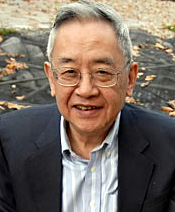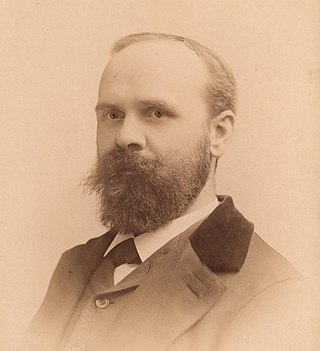Individualist anarchism is the branch of anarchism that emphasizes the individual and their will over external determinants such as groups, society, traditions and ideological systems. Although usually contrasted to social anarchism, both individualist and social anarchism have influenced each other. Some anarcho-capitalists claim anarcho-capitalism is part of the individualist anarchist tradition, while others disagree and claim individualist anarchism is only part of the socialist movement and part of the libertarian socialist tradition. Mutualism, an economic theory sometimes considered a synthesis of communism and property, has been considered individualist anarchism and other times part of social anarchism. Many anarcho-communists regard themselves as radical individualists, seeing anarcho-communism as the best social system for the realization of individual freedom. Economically, while European individualist anarchists are pluralists who advocate anarchism without adjectives and synthesis anarchism, ranging from anarcho-communist to mutualist economic types, most American individualist anarchists of the 19th century advocated mutualism, a libertarian socialist form of market socialism, or a free-market socialist form of classical economics. Individualist anarchists are opposed to property that violates the entitlement theory of justice, that is, gives privilege due to unjust acquisition or exchange, and thus is exploitative, seeking to "destroy the tyranny of capital, — that is, of property" by mutual credit.

Thomas Robert Malthus was an English economist, cleric, and scholar influential in the fields of political economy and demography.

Alfred Marshall was an English economist, and was one of the most influential economists of his time. His book Principles of Economics (1890) was the dominant economic textbook in England for many years. It brought the ideas of supply and demand, marginal utility, and costs of production into a coherent whole. He is known as one of the founders of neoclassical economics.

Joseph Butler was an English Anglican bishop, theologian, apologist, and philosopher, born in Wantage in the English county of Berkshire. He is known for critiques of Deism, Thomas Hobbes's egoism, and John Locke's theory of personal identity. The many philosophers and religious thinkers Butler influenced included David Hume, Thomas Reid, Adam Smith, Henry Sidgwick, John Henry Newman, and C. D. Broad, and is widely seen as "one of the pre-eminent English moralists." He played a major, if underestimated role in developing 18th-century economic discourse, influencing the Dean of Gloucester and political economist Josiah Tucker.
The John W. Kluge Center at the Library of Congress invites and welcomes scholars to the Library of Congress to conduct research and interact with policymakers and the public. It also manages the Kluge Scholars' Council and administers the Kluge Prize at the Library of Congress.
The John W. Kluge Prize for the Study of Humanity is awarded since 2003 for lifetime achievement in the humanities and social sciences to celebrate the importance of the Intellectual Arts for the public interest.

Josiah Warren was an American utopian socialist, American individualist anarchist, individualist philosopher, polymath, social reformer, inventor, musician, printer and author. He is regarded by anarchist historians like James J. Martin and Peter Marshall among others as the first American anarchist and the four-page weekly paper he edited during 1833, The Peaceful Revolutionist, the first anarchist periodical published, was an enterprise for which he built his own printing press, cast his own type, and made his own printing plates.

Josiah Tucker, also known as Dean Tucker, was a Welsh churchman, known as an economist and political writer. He was concerned in his works with free trade, Jewish emancipation and American independence. He became Dean of Gloucester.

Progress and Poverty: An Inquiry into the Cause of Industrial Depressions and of Increase of Want with Increase of Wealth: The Remedy is an 1879 book by social theorist and economist Henry George. It is a treatise on the questions of why poverty accompanies economic and technological progress and why economies exhibit a tendency toward cyclical boom and bust. George uses history and deductive logic to argue for a radical solution focusing on the capture of economic rent from natural resource and land titles.
Individualist anarchism in the United States was strongly influenced by Benjamin Tucker, Josiah Warren, Ralph Waldo Emerson, Lysander Spooner, Pierre-Joseph Proudhon, Max Stirner, Herbert Spencer and Henry David Thoreau. Other important individualist anarchists in the United States were Stephen Pearl Andrews, William Batchelder Greene, Ezra Heywood, M. E. Lazarus, John Beverley Robinson, James L. Walker, Joseph Labadie, Steven Byington and Laurance Labadie.

Yu Ying-shih was a Chinese-born American historian, sinologist, and the Gordon Wu '58 Professor of Chinese Studies, Emeritus, at Princeton University. He was known for his mastery of sources for Chinese history and philosophy, his ability to synthesize them on a wide range of topics, and for his advocacy for a new Confucianism. He was a tenured professor at Harvard University and Yale University before his time at Princeton.
Josiah Ober is an American historian of ancient Greece and classical political theorist. He is Tsakopoulos-Kounalakis Professor in honor of Constantine Mitsotakis, and professor of classics and political science, at Stanford University. His teaching and research links ancient Greek history and philosophy with modern political theory and practice.
Liberalism is a political and moral philosophy based on the rights of the individual, liberty, consent of the governed, political equality, right to private property and equality before the law. Liberals espouse various views depending on their understanding of these principles but generally support private property, market economies, individual rights, liberal democracy, secularism, rule of law, economic and political freedom, freedom of speech, freedom of the press, freedom of assembly, and freedom of religion, constitutional government and privacy rights. Liberalism is frequently cited as the dominant ideology of modern history.
John Wyon Burrow, FBA was an English historian of intellectual history. His published works include assessments of the Whig interpretation of history and of historiography generally. According to The Independent: "John Burrow was one of the leading intellectual historians of his generation. His pioneering work marked the beginning of a more sophisticated approach to the history of the social sciences, one that did not treat the past as being of interest only in so far as it anticipated the present."
Types of socialism include a range of economic and social systems characterised by social ownership and democratic control of the means of production and organizational self-management of enterprises as well as the political theories and movements associated with socialism. Social ownership may refer to forms of public, collective or cooperative ownership, or to citizen ownership of equity in which surplus value goes to the working class and hence society as a whole. There are many varieties of socialism and no single definition encapsulates all of them, but social ownership is the common element shared by its various forms Socialists disagree about the degree to which social control or regulation of the economy is necessary, how far society should intervene, and whether government, particularly existing government, is the correct vehicle for change.

Benjamin Ricketson Tucker was an American individualist anarchist. Tucker was the editor and publisher of the American individualist anarchist periodical Liberty (1881–1908). Tucker was a member of the First International, with his publication Liberty represented as the English language organ for the Socialistic-Revolutionary Congress. Tucker described his form of anarchism as "consistent Manchesterism" and stated that "the Anarchists are simply unterrified Jeffersonian Democrats."
Market socialism is a type of economic system involving social ownership of the means of production within the framework of a market economy. Various models for such a system exist, usually involving some mix of public, cooperative, and privately owned enterprises. In contrast to the majority of existent socialist economies, which have substituted the market mechanism for some form of economic planning, market socialists wish to retain the use of supply and demand signals to guide the allocation of capital goods and the means of production. Under such a system, depending on whether socially owned firms are state-owned or operated as worker cooperatives, profits may variously be used to directly remunerate employees, accrue to society at large as the source of public finance, or be distributed amongst the population in a social dividend.
The term classless society refers to a society in which no one is born into a social class. Distinctions of wealth, income, education, culture, or social network might arise and would only be determined by individual experience and achievement in such a society. Thus, the concept posits not the absence of a social hierarchy but the uninheritability of class status. Helen Codere defines social class as a segment of the community, the members of which show a common social position in a hierarchical ranking. Codere suggest that a true class-organized society is one in which the hierarchy of prestige and social status is divisible into groups. Each group with its own social, economic, attitudinal and cultural characteristics, and each having differential degrees of power in community decision.
Mark Goldie is an English historian and Professor of Intellectual History at Churchill College, Cambridge. He has written on the English political theorist John Locke and is a member of the Early Modern History and Political Thought and Intellectual History subject groups at the Faculty of History in Cambridge.
Katrina Max Forrester is a British political theorist and historian, and the John L. Loeb Associate Professor of the Social Sciences at Harvard University. Her research interests are in the history of liberalism and the left in the postwar US and Britain; Marxism, feminism, and psychoanalysis; climate politics; and theories of work and capitalism. Her In the Shadow of Justice: Postwar Liberalism and the Remaking of Political Philosophy won a number of academic awards. She has written on a variety of topics for the London Review of Books, The New Yorker, Dissent, N+1, Harper's and The Guardian, amongst others.







